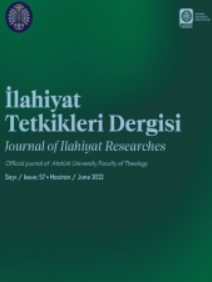The Main Principles of Living Together in al- Fārābī’s Virtuous State
The Main Principles of Living Together in al- Fārābī’s Virtuous State
Author(s): Ali Kürşat TurgutSubject(s): Ethics / Practical Philosophy, Political Philosophy, Islam studies, Philosophy of Middle Ages
Published by: Atatürk Üniversitesi İlahiyat Fakültesi
Keywords: Islamic Philosophy; Al-Fārābī; Virtuous State (City); Living Together; Helping Each Other; Love;
Summary/Abstract: As a Turkish philosopher, it is important in terms of indicating the news perspectives that brought to Islamic political philosophy in al-Madīna al-Fāḍilah and his other works, which al-Fārābī wrote with a different point of view. Al-Fārābī’s thought of virtuous state, which he framed with moral principles, stands in a original place in terms of signifying what should be, although it is claimed to be utopian. The Second Teacher divides the state into two as virtuous and unvirtuous in general. Besides, the most basic point to be underlined in al-Fārābī’s understanding of ideal or world state within the virtuous society is that all individuals in there have an comprehension of living together and for this reason they agree on certain principles. Some of these principles are related both the ruler and ruled. Nevertheless, al-Fārābī emphasizes other principles such as justice, cooperation, love and merit. These teachings put forward by the philosopher exactly coincide with the universal principles that humanity reached as a result of various experiences in the modern period. In this study, we will examine the principles that al-Fārābī emphasized in his ideal state and try to evaluate how these will contribute to the opinion of living together.
Journal: İlahiyat Tetkikleri Dergisi
- Issue Year: 2022
- Issue No: 57
- Page Range: 38-45
- Page Count: 8
- Language: English

